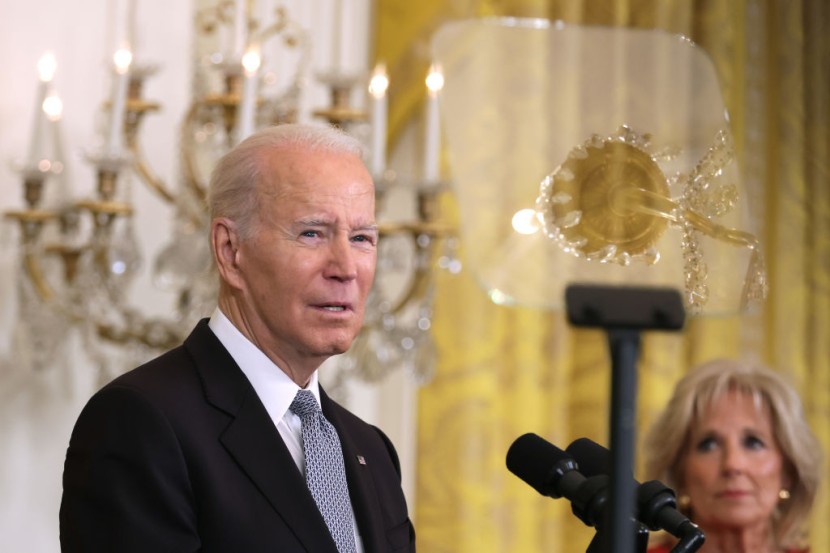
- US President Joe Biden cast his first veto, rejecting a Republican ban on pension funds
- The bill vetoed by President Biden would have reinstated a Trump-era prohibition on federal retirement plan administrators
- Democrats say the policy is neutral on how ESG factors are considered
President Joe Biden cast the first veto of his term on Monday, overruling a motion to repeal a regulation allowing retirement fund managers to consider climate change and other environmental, social, and governance considerations when selecting investments.
Republicans spearheaded the effort to get the resolution through House, contending that the regulation is a"woke" policy that imposes a leftist agenda on citizens and would harm pensioners' finances, whilst Democrats argue that it is not political and will benefit investors.
Joe Biden Issues First Veto
Both chambers of Congress approved the resolution to repeal a Department of Labor regulation, with Democratic senators Joe Manchin of West Virginia and Jon Tester of Montana joining Republicans in the Senate. The veto fulfills Biden's repeated pledge to reject legislation enacted by the Republican-controlled House with which he disagrees.
I just vetoed my first bill.
— President Biden (@POTUS) March 20, 2023
This bill would risk your retirement savings by making it illegal to consider risk factors MAGA House Republicans don't like.
Your plan manager should be able to protect your hard-earned savings — whether Rep. Marjorie Taylor Greene likes it or not. pic.twitter.com/PxuoJBdEee
Before the Republicans assumed control of the chamber, Biden frequently emphasized his capacity to thwart their agenda. Several days before the midterm elections in November, he told a gathering of fundraisers in Chicago, "The good news is I'll have a veto pen."
Opponents of the regulation might attempt to overturn Biden's veto, but it seems improbable that they could obtain the two-thirds majority in each House required, as per CNN.
Biden's first presidential veto underscores the realities of a changing political order in Washington, where Republicans had reclaimed the House following their victory over Democrats in the midterm elections of 2022.
According to Fox News, this measure would have repealed an environmental, social, and corporate governance (ESG) rule issued by the Biden administration. The Republican-controlled House approved the measure on February 28 by a vote of 216 to 204, with one Democrat joining Republicans in support.
The Senate passed a similar bill on March 1 by a vote of 50-46, with the backing of two moderate Democrats from states that lean Republican, West Virginia Senator Joe Manchin and Montana Senator Jon Tester.
Using a legislative device known as the Congressional Review Act, Republican legislators targeted the in dispute Labor Department regulation. It permits a simple majority vote in both chambers of Congress to repeal a recently issued rule on an accelerated timetable.
ESG, according to defenders of the law, only provides another issue for investment managers to consider. Congress is unlikely to override the president's veto since it would take a two-thirds majority in each chamber.
Republican Investment Rule Blocked
The timing of Biden's first veto was comparable to that of former President Donald Trump, who delivered his first veto in March 2019 against a resolution that would have banned him from constructing a border wall without legislative approval.
In recent administrations, presidential vetoes have occurred less often. According to the American Presidency Project at the University of California, Santa Barbara, former presidents George W. Bush, Barack Obama, and Donald Trump issued a dozen or fewer vetoes throughout their respective terms. In comparison, past presidents Bill Clinton and George H.W. Bush issued over thirty vetoes apiece.
In November, Biden's Labor Department reinstated the rule, reversing an effort by former Republican president Donald Trump to penalize fund managers who consider climate change when making investment decisions.
As long as the investment fund meets its commitments to its beneficiaries, according to Democrats, the policy is neutral on how ESG factors are considered.
Large investment giants like BlackRock hailed the measure, which the Biden administration describes as a financial gain for climate-risk-conscious investors. Yet, states run by Republicans have exerted pressure on businesses to ostensibly boycott oil and gas corporations as part of "responsible" investment policies, as per The News.
Related Article: Why Joe Biden Wants Wealthy Americans To Be Taxed More
© 2025 HNGN, All rights reserved. Do not reproduce without permission.








